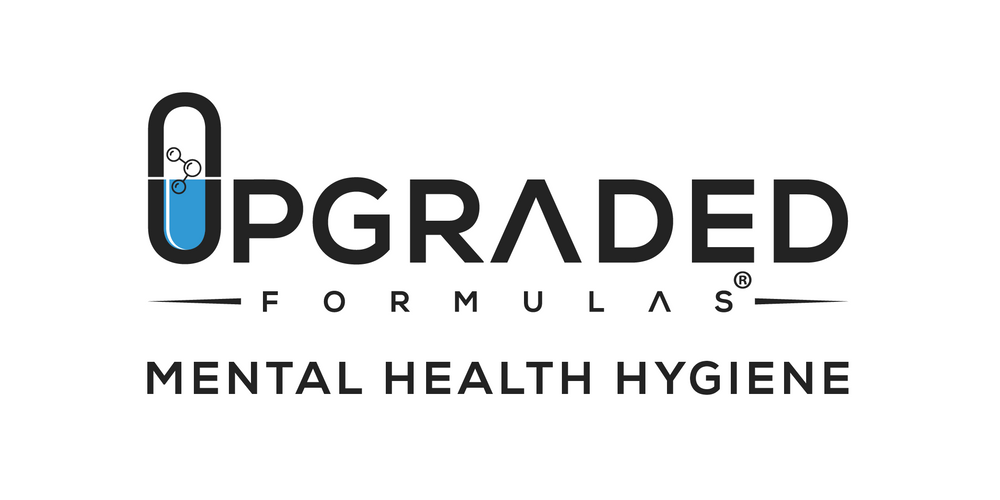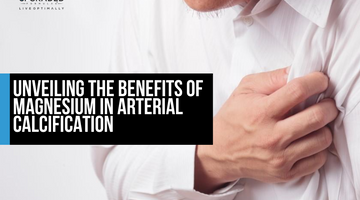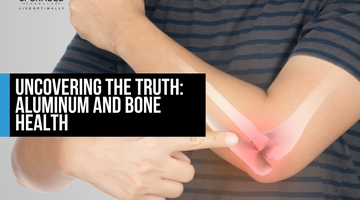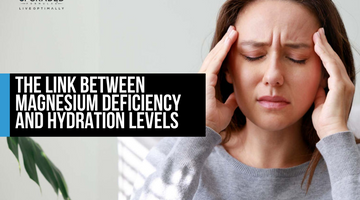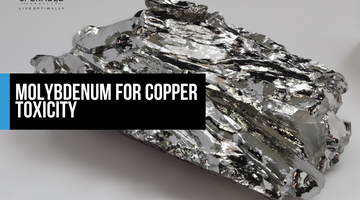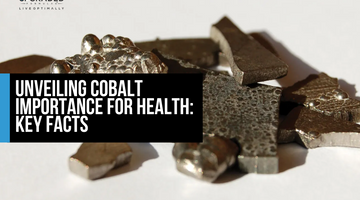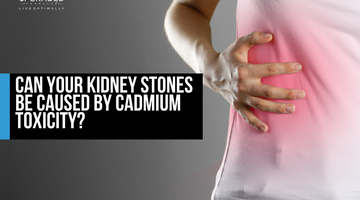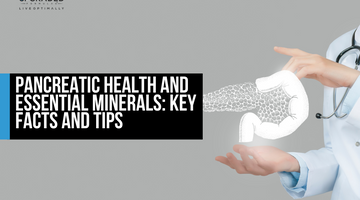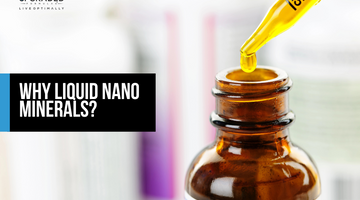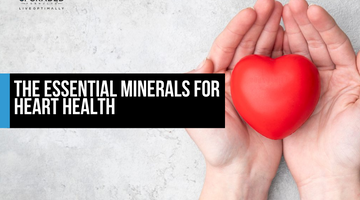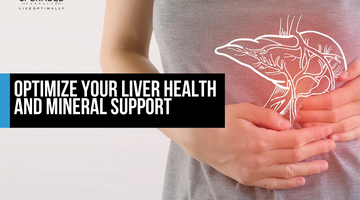hair tissue mineral analysis
- All
- abdominal pain
- absorption
- acetyl
- achy joints
- acid reflux
- acne
- activated charcoal
- acute toxicity
- adaptogens
- adhd
- adolescent
- adrenal
- adrenal adrenal glands
- adrenal fatigue
- adrenal fatigue stress
- adrenal glands
- adrenal health
- adrenal ratio
- adrenals
- aging
- agitation
- alcohol
- aldosterone
- allergies
- allergy
- alopecia
- aluminum
- alzheimer's
- amino acids
- andropause
- anemia
- anger
- anorexia nervosa
- anti bacterial
- anti fungal
- anti viral
- antiaging
- antifungal
- antimicrobial
- antimony
- antioxidant
- antiviral
- Anxiety
- anxious
- appetite
- are there side effects to magnesium
- aresenic
- Arginine
- arsenic
- arsenic toxicity
- arterial calcification
- arthritis
- ascorbic acid
- asthma
- athletes
- autism
- autoimmunity
- b vitamins
- b1
- b12
- b6
- bacteria
- bacterial infection
- bad habits
- bariyum
- barton scott
- beard
- benefits of magnesium
- benefits of magnesium supplements
- best mineral supplements
- Best self
- best supplements
- bi polar
- bi polar disorder
- bile
- bile production
- Biohacking
- biosynthesis
- bipolar disorder
- bismuth
- bitters
- bleeding gums
- blindness
- bloating
- blood cells
- blood circulation
- blood flow
- blood glucose
- blood pressure
- blood sugar
- blood sugar dysregulation
- blood sugar imbalance
- blood sugar insulin
- blue light
- body fat
- bone broth
- bone density
- bone health
- bone mineralization
- bones
- Books
- boric acid
- boron
- bowl pattern
- brain fog
- brain health
- breast pain
- breathwork
- bromide
- bromine
- burnout
- ca:k ratio
- ca:mg
- cadmium
- cadmium toxicity
- caffeine
- calcium
- calcium deficiency
- calcium fluoride
- calcium shell
- calm
- calming
- calories
- camdium
- Can magnesium help with anxiety
- cancer
- candida
- carb metabolism
- carbohydrates
- carbs
- cardiovascular disease
- cardiovascular health
- cartilage
- cataracts
- cell growth
- cell permeability
- cellular hypothyroidism
- cellulite
- ceruloplasmin
- charcoal
- chelation therapy
- Chelator
- chemical toxicity
- chest pain
- children
- chloride
- chlorine
- cholesterol
- choline
- chromium
- chromium deficiency
- chromium toxicity
- chronic fatigue
- chronic stress
- chronic toxicity
- cigarettes
- circulation
- clinical trial
- cobalt
- cobalt toxicity
- coffee enema
- coffee enemas
- cognition
- cognitive function
- cold
- collagen
- concentration
- conjunctivitis
- constipation
- copper
- copper deficiency
- copper dysregulation
- copper toxicity
- core minerals
- coronary heart disease
- coronavirus
- covid
- covid 19
- cramps
- cramps constipation
- cravings
- cutting hair
- cyanocobalamin
- cystic fibrosis
- cysts
- dairy
- dehydration
- dementia
- dental enamel
- Depression
- detox
- detoxification
- detoxing
- diabetes
- diabetes blood sugar dysregylation
- diarrhea
- diet
- digestion
- digestive enzymes
- digestive health
- digestive issues
- dizziness
- dna synthesis
- does magnesium help with anxiety
- drugs
- dry brushing
- dry eyes
- dry hair
- dry mouth
- dry skin
- dysmenorrhea
- Dyspareunia
- eating better
- electro magnetic fields
- electrolytes
- electrolytes blood pressure
- emf
- emfs
- emotional
- Emotional health
- emotions
- emunctory organs
- endocrine
- Endometriosis
- enema
- energy
- enzyme function
- epilepsy
- estrogen
- estrogen dominance
- exercise
- exfoliation
- eye health
- eye redness
- faitgue
- families
- FAQ
- fast oxidation
- fast oxidizer
- Fasting
- fat
- fat distribution
- fat metabolism
- fatigue
- fe:cu ratio
- fertility
- fever
- Fiber
- fluid balance
- fluoride
- fluorine
- Fluorosis
- focus
- folate
- follicle devlopment
- food poison
- forms of magnesium
- fruit
- fulvic acid
- functional labs
- functional testing
- fungal
- fungal infections
- fungus
- gall bladder
- gallstones
- ginseng
- glaucoma
- glucagon
- gluconeogenisis
- glucose
- glutathione
- glycogen
- glycolisis
- good habits
- grapeseed extract
- grave's disease
- green tea
- grey hair
- greying
- gut health
- h.pylori
- habits
- hair
- hair analysis
- hair color
- hair health
- hair loss
- hair loss. hair growth
- hair test
- hair test kit
- hair testing
- hair tissue mineral analysis
- halogens
- hangry
- hashimoto's
- hashimotos
- headaches
- health
- Health and wellness
- heart attack
- heart disease
- heart failure
- heart health
- heavy metal
- heavy metal detox
- heavy metal toxicity
- heavy metal toxicity analysis
- heavy metals
- heavy metals quiz
- high blood pressure
- high blood sugar
- high ca:mg ratio
- high calcium:magnesium ratio
- high cholesterol
- high copper
- high estrogen
- high nickel
- histamine
- holistic
- hormonal imbalances
- hormone regulation
- hormones
- hot flashes
- how long does magnesium take to work for anxiety
- how much magnesium should I take for anxiety
- htma
- hunger
- hydration
- hydration levels
- hydrochloric acid
- Hydrofluosilicic Acid
- hyperactivity
- hyperglycemia
- hyperlgycemia
- hypertension
- hyperthyroid
- hyperthyroidism
- hypoglycemia
- hypotension
- hypothyroid
- hypothyroidism
- immune health
- immune system
- immunity
- improve sleep
- infection
- infections
- infertility
- inflammation
- injuries
- insomnia
- insulin
- insulin resistance
- intestines
- iodide
- iodine
- iodine deficiency
- iodine loading test
- iodione patch test
- ionic mimicry
- iron
- iron benefits
- iron deficiency
- iron metabolism
- iron overload
- iron recycling system
- is magnesium good for anxiety
- japan
- joint health
- joint pain
- joints
- kidney disease
- kidneys
- kids
- l carnitine
- L pattern
- lead
- lead exposure
- lead toxicity
- libido
- life and death ratio
- lifestyle ratio
- ligaments
- light
- liquid iodine
- lithium
- live optimally
- liver
- liver cancer
- liver cleanse
- liver detox
- liver disease
- liver health
- liver thyroid
- long hauler
- long haulers syndrome
- loose stool
- low blood pressure
- low blood sugar
- low immune system
- low magnesium
- low testosterone
- low zinc
- lupus
- lyme
- lymph
- lymphatic system
- m
- maca
- magnesium
- magnesium and sleep
- magnesium benefits
- magnesium deficiency
- magnesium doses
- magnesium for anxiety
- magnesium for insomnia
- magnesium for sleep
- magnesium levels
- magnesium supplement
- magnesium supplements
- manganese
- manganese deficiency
- manganese toxicity
- mania
- medication
- meditation
- melatonin
- memory
- men's health
- men's health bundle
- menopause
- menstrual cramps
- mental clarity
- mental disorder
- mental health
- mental health disorder
- mental health disorders
- mental health hygiene
- mercury
- mercury toxicity
- Metabolic health
- metabolic type
- metabolic typing
- metabolism
- metallothionein
- methionine
- methylcobalamin
- migraines
- mineral antagonists
- mineral balancing
- mineral deficiency
- mineral imabalces
- mineral imbalances
- mineral levels
- mineral rich foods
- mineral synergists
- mineral testing
- minerals
- mold
- mold toxicity
- molybdenum
- Mood
- mood disorders
- most accurate hair analysis testing
- most bioavailable mineral supplements
- most important supplements
- msod
- mthfr
- muscle cramps
- muscle function
- muscle gain
- muscle mass
- muscle soreness
- muscle spasms
- myelin
- na:k
- na:k ratio
- na:mg
- na:mg ratio
- nafld
- nails
- nano minerals
- nausea
- nerve function
- nerves
- nervous system
- nervous system muscle spasms
- nervousness
- new years
- new years resolutions
- nickel
- nickel toxicity
- nicotine
- night sweats
- nitric oxide
- non alcoholic liver disease
- not living your truth
- numbness
- nutrient deficiencies
- nutrition
- Nutritional deficiencies
- obesity
- oral health
- organ meats
- osteoarthritis
- osteopenia
- osteoporosis
- oxalates
- oysters
- ozempic
- pain
- pancreatic enzymes
- parasites
- parathyroid hormone
- pathogens
- peak thyroid
- penumonia
- pepsin
- period
- peruvian ginseng
- pH balance
- phosphorus
- phosphorus deficiency
- physical health
- pituitary
- pnacreas
- podcast
- poly cystic ovarian syndrome
- poly cystic ovaries
- poor sleep
- potassium
- potassium deficiency
- potassium thyroid
- potatoes
- pregnancy
- pregnant women
- probiotics
- processing emotions
- progesterone
- prostate
- protein
- protein metabolism
- pubic hair
- purines
- pyrdoxine
- pyridoxine
- pyruvate kinase
- quiz
- radiation
- radioactivity
- reasons you can't sleep
- recovery
- red blood cells
- red light therapy
- reduce stress
- reproductive health
- resolutions
- respiratory
- rest
- retinol
- reverse L pattern
- rheumatoid arthritis
- rosacea
- rubidium
- rubidium deficiency
- sadness
- salt
- sarcopenia
- sauna therapy
- scalp hair
- schizophrenia
- science
- seizures
- selenium
- selenium deficiency
- serotonin
- shilajit
- silica
- skin
- Sleep
- slow metabolism
- slow oxidizer
- smoking
- sodium
- sodium deficiency
- sodium fluoride
- sodium:potassium ratio
- sour foods
- sperm health
- spring detox
- step up pattern
- stimulants
- stomach
- stomach acid
- stomach acidity
- strength
- strep
- stress
- stroke
- sugar
- suicide
- sulfur
- supplements
- sympathetic dominance
- sympathetic nervous system
- taking magnesium
- technology
- teenagers
- temperature
- temperature regulation
- testing
- testosterone
- testosterone upgraded t
- thanksgiving
- Theobromine
- thiamine
- thirst
- thyroid
- thyroid health
- thyroid issues
- tin
- tingling
- tissue oxygenation
- titanium
- tooth enamel
- total upgrade
- toxicity
- toxicity quiz
- toxins
- trace minerals
- trauma
- tumors
- type 2 diabetes
- type of hair
- types of magnesium
- under arm hair
- uograded zinc
- upgraded boron
- upgraded calcium
- upgraded chromium
- upgraded copper
- upgraded cramp relief
- Upgraded Iodine
- Upgraded Iron
- upgraded magnesium
- upgraded manganese
- upgraded memory
- upgraded metabolism
- upgraded mood
- Upgraded Selenium
- Upgraded Sugar Support
- Upgraded T
- upgraded zinc
- uranium
- uric acid
- vagus nerve
- vanadium
- viral
- viral infections
- virus
- viruses
- vision changes
- vitality ratio
- vitamin c
- vitamin a
- vitamin b1
- vitamin b12
- vitamin b3
- Vitamin B6
- vitamin c
- vitamin d
- vitamin d deficiency
- vitamin e
- vitamin k2
- vitamin supplements
- vitamins
- vomiting
- water
- water retention
- weakness
- weight gain
- weight loss
- well-being
- what are the benefits of taking magnesium
- what should you not take with magnesium
- When should I take my magnesium
- which form of magnesium is best for anxiety
- white hair
- who can do hair tetsing
- who needs magnesium
- who should not take magnesium
- wound healing
- yeast infections
- yoga
- zinc
- Zinc and copper balance
- zinc deficiency
- zinc supplements
- zinc.
Unveiling the Benefits of Magnesium in Arterial Calcification
Arterial calcification occurs frequently, predominantly in the older adult population. As individuals age, the likelihood of developing this condition escalates, often accompanying cardiovascular risk factors, including elevated blood pressure, raised cholesterol levels, diabetes, and tobacco use.
How Do You Get Lead Toxicity?
Despite stringent regulations and increased awareness of its hazards, lead remains a pervasive toxic threat in the modern world. Efforts to reduce lead exposure have been significant, yet the element's presence persists across various industries and products, underlining the ongoing challenge of mitigating its risks.
Uncovering the Truth: Aluminum and Bone Health
Aluminum is one of the most prevalent toxic substances in the earth's crust, and its presence in our environment can harm our health. High aluminum content in the body has been linked to harmful effects on the nervous system and is a concern for individuals receiving total parenteral nutrition. It is crucial to be aware of the potential impact of aluminum on bone health and take steps to minimize exposure to this toxic substance.
The Link Between Magnesium Deficiency and Hydration Levels
Have you ever experienced dehydration so acutely that your skin feels parched, your mouth resembles a barren landscape, and your hands and legs begin to resemble a flaky autumn leaf? It's as though every step you take echoes the arid paths of the Sahara Desert.
Why You Cannot Mineral Balance On A Plant Based Diet
The current trend leans heavily towards adopting plant-based, vegetarian, or even vegan lifestyles, driven by various ethical, environmental, and health considerations. This shift prompts a critical inquiry: Do these dietary choices enhance our health more than traditional omnivorous diets, specifically regarding mineral balance?
Molybdenum for Copper Toxicity
Copper toxicity, also called copper dysregulation, occurs when an excess of copper in the body is not bioavailable for use. Bioavailability determines how much copper can be effectively utilized within our system. This condition highlights a critical imbalance that emphasizes not just the quantity but the usability of copper within the body, underlining why it can be hazardous to our health, especially if too much copper is present. This can lead to damage in vital organs such as the liver, kidney, heart, and brain, making it crucial to address and manage acute copper toxicity, especially in severe cases such as kidney failure.
Unveiling Cobalt Importance for Health: Key Facts
Have you ever wondered about the 'cobalt' marker indicated in your Hair Tissue Mineral Analysis (HTMA)? This enigmatic constituent often leaves people curious, leading them to seek knowledge beyond the surface. Commonly, cobalt is associated with our body's digestive capability, especially concerning the absorption of crucial nutrients like vitamin B12. Yet, cobalt encompasses far more than this, significantly maintaining liver health and numerous other vital processes in the body.
Can Cadmium Toxicity cause Your Kidney Stones?
Kidney Stones: The Unwelcome Guests Within. Far from being a trivial annoyance, kidney stones are a source of intense pain and discomfort, striking as foreign invaders in the delicate ecosystem of our bodies. Rather than a natural anatomy component, they represent the unwanted accumulation of substances our systems are ill-equipped to handle. Be it due to inadequate detoxification or the insidious influence of pollutants like heavy metals, these crystalline formations, also known as small stones, can cause significant health challenges, including complications such as kidney disease and blocking the flow of urine.
Pancreatic Health and Essential Minerals: Key Facts and Tips
Often overshadowed by other organs, the pancreas is a cornerstone of our digestive and endocrine systems, performing tasks vital to our health and well-being. Despite its modest size, the importance of the pancreas extends far beyond its physical dimensions, serving critical roles in processing the food we eat and regulating our body's sugar levels.
Why Liquid Nano Minerals?
Welcome to our blog on liquid nano minerals! This article will explore the importance of minerals in our health and why liquid nano minerals are a game-changer in mineral supplementation. Minerals are essential for our body's overall functionality and crucial in red blood cell production, immune system support, and enzyme reactions.
The Essential Minerals for Heart Health
For many individuals, heart health is often oversimplified to the mantra of "exercise more, eat less cholesterol, and limit your salt intake." While these pieces of advice do hold some value, they barely scratch the surface of the broader and often under-explored intricacies of heart health. More importantly, this standard advice usually neglects one critical aspect of overall cardiovascular health: the central role of essential nutrients, particularly minerals like vitamin E, in maintaining a healthy heart.
Optimize Your Liver Health and Mineral Support
The liver is a sentinel of our body's internal balance, orchestrating a symphony of vital functions for our overall well-being. The liver's significance cannot be overstated, from metabolism to detoxification, nutrient storage to immune defense. Yet, amidst its multifaceted roles, the liver relies on a cadre of essential minerals and specific herbs like milk thistle to maintain its intricate dance of physiological processes.

